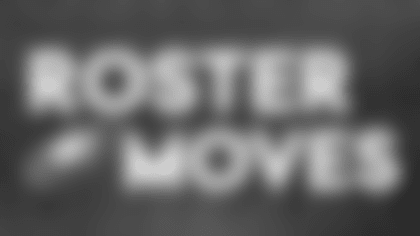Dick Vermeil and Andy Reid each guided Eagles teams to the Super Bowl. They were hired as young coaches and built the team up over several years to the point where the Eagles were among the best teams in the league. Are there any lessons Doug Pederson can learn from them about building a championship-caliber team? I'm a believer that there is real value in studying the past.
There is no specific formula for building a Super Bowl team. The Rams won with one of the greatest offenses of all time. The Ravens won with one of the best defenses ever. The Colts won with Peyton Manning, the No. 1 choice in the 1998 draft. The Bucs won with Brad Johnson, a journeyman in his mid-30s. Washington won multiple titles behind a dominant offensive line. The real trick seems to be finding the right combination of players.
While there is no magic formula, you can learn from what Vermeil and Reid did. Let's compare them to Buddy Ryan, Ray Rhodes, and Chip Kelly, all coaches who reached the postseason in Philly, but couldn't get the team to the top.
Vermeil and Reid both had extensive backgrounds as college coaches. They both came in with the idea of building a team over the course of several years. Ryan and Rhodes joined the Eagles after being the defensive coordinator of teams that won the Super Bowl. They had high expectations and there was pressure to win right away. Kelly came from Oregon, where he built a dominant program. Expectations were sky-high with Kelly running the Eagles.
Vermeil won four games in his first season. That went up to five the next year and then in 1978 the Eagles went 9-7 and made the playoffs. Reid won five games in his first year. The Eagles made a huge jump in 2000, going 11-5, reaching the playoffs and even advancing to the Divisional Round. Ryan needed three years to post his first winning record with the Eagles. Rhodes and Kelly both won 10 games in their first season and made the playoffs. They inherited a talented base and added enough good players to get those teams turned around instantly.
Rhodes and Kelly each brought something unique to the job. Rhodes was a master motivator, giving fiery pregame speeches and trying to keep his team constantly on edge. That worked great for a while, but you can't build on emotion. That's just not sustainable. Kelly brought his up-tempo, no-huddle style of football to the NFL. It caught opponents off-guard for a while, but NFL teams adjusted to his ideas faster than his college opponents had.
It is interesting that both coaches peaked in the middle of their second season. In 1996, Rhodes' Eagles were 7-2 after beating Dallas and looked like they might have something special. The team then lost three games in a row and was never the same. In 2014, Kelly's Eagles were 9-3 after beating Dallas on Thanksgiving and looked like they might have something special. They also lost three games in a row and eventually missed the playoffs.
Vermeil and Reid had talented young quarterbacks and good offensive lines to protect them. Vermeil traded for Ron Jaworski in 1977 and put him behind a line that included Stan Walters, Jerry Sisemore, and Guy Morriss. Reid drafted McNabb and put him behind a line featuring Tra Thomas, Jon Runyan, and Jermane Mayberry.
The young quarterbacks also had excellent coaches. Reid was an offensive guru. He had veteran offensive coach Rod Dowhower on his staff and brought in a young guy named Brad Childress. That's a great set of coaches for a young quarterback. Vermeil had John Ralston work with Jaworski one year and hired Sid Gillman in 1979. Gillman is the father of the modern passing game and one of the greatest offensive minds in football history.
The offensive line was Ryan's biggest failure. He could not develop a good line as coach of the Eagles. He had a dynamic young quarterback in Randall Cunningham, but the porous line caused Cunningham to develop some bad habits. In addition, Ryan never hired a good offensive coaching staff which didn't help matters. Doug Scovil certainly did some good things until his tragic passing in 1989, but Cunningham would have benefited from a better overall offensive staff.
Rhodes built an effective line with a mix of declining veterans and scrappy young players, but they just didn't have the talent to get the job done against top-flight defenses. In two playoff losses under Rhodes, the Eagles scored a total of 11 points and quarterbacks were sacked eight times. Rhodes used veteran quarterbacks Rodney Peete, Ty Detmer, and Cunningham for 2 1/2 years before finally playing Bobby Hoying. A few good games from Hoying proved to be a mirage and he was flat-out awful in 1998.
Rhodes could not solve the quarterback situation during his tenure. He had three different players start at least 10 games for him. That was in a four-year span. Rhodes had five different quarterbacks start at least four games for him. That's crazy.
Kelly had a similar situation at quarterback. He coached the Eagles for three years. Kelly had four different players start at least six games for him. That is just not how you build a good team in the NFL. You need stability at that position.
Vermeil and Reid each developed their young quarterbacks well. One of the keys is that both coaches showed faith in the young guys. They let the young players make mistakes and grow into the position. The worst thing you can have is a young quarterback who is afraid to make a mistake. They have to know they can take chances and won't be benched if things go wrong.
Vermeil and Reid both understood that the only way they were building championship-caliber teams is if they got the quarterback situation right. That meant finding the right player, protecting him, and giving him a good coaching staff. Rhodes and Kelly wasted years with players who just weren't good enough. Ryan had a supreme talent but didn't handle him right at all.
Entering his second season, Pederson certainly seems to be on the right track. He has a terrific young quarterback in Carson Wentz. Pederson has built up a good offensive line to protect Wentz and has now surrounded him with some offensive weapons.
Pederson also seems to understand the balance between trying to win now and developing a team. All coaches want to win right away, but some understand that you must invest in young players. That leads to continuity and helps a team to be good over the course of several years.
The Eagles had to deal with up and down play from Jalen Mills, Wendell Smallwood, and Halapoulivaati Vaitai last year but will benefit from the lessons they learned as rookies being thrown into the fire.
The Eagles are headed in the right direction. The challenge is for Pederson to keep building this team the right way and to get them to consistently play at a high level.















